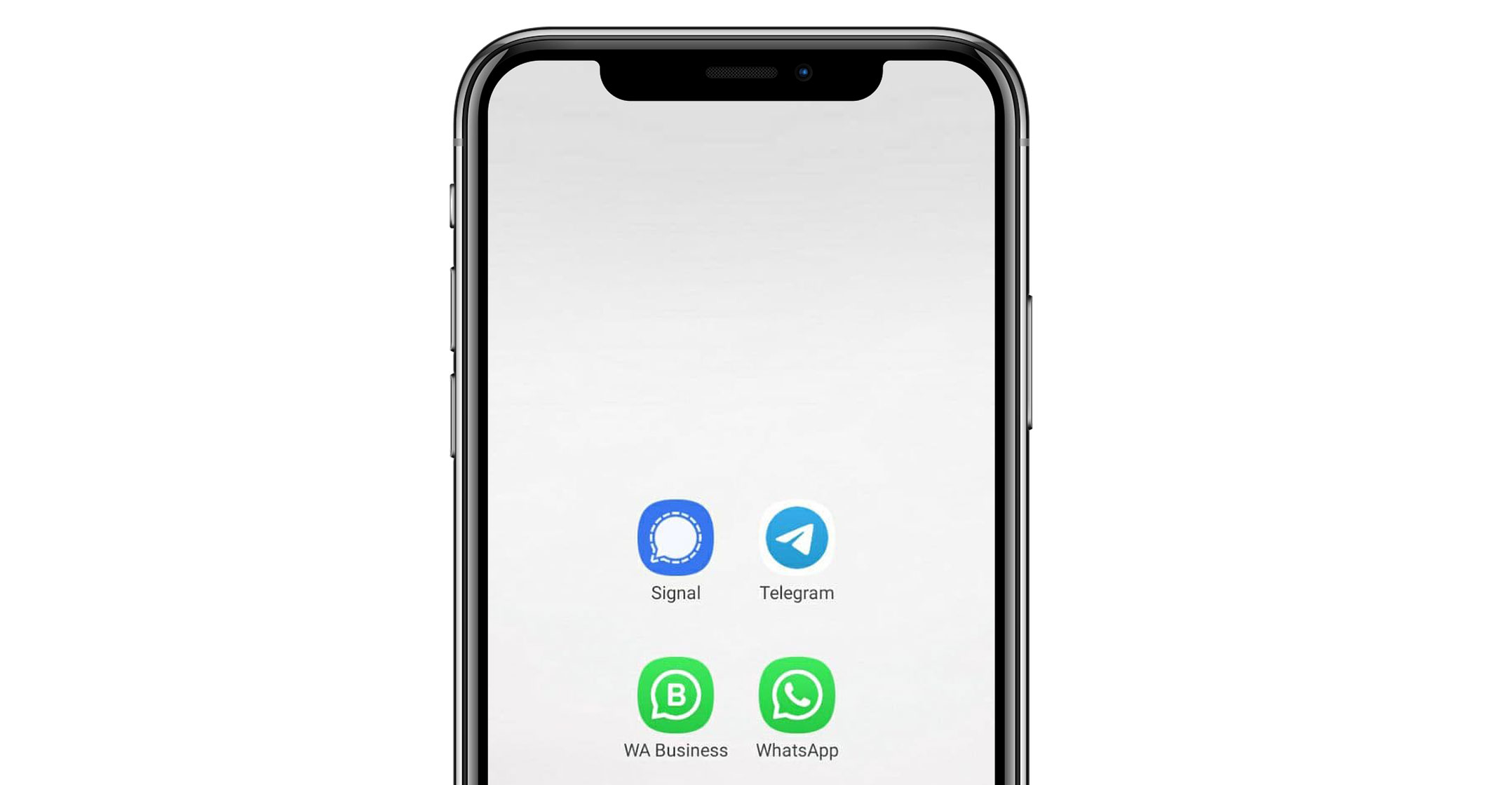 Messaging app Telegram recently joined an exclusive club: It had its one billionth download, becoming one of about a dozen apps in the world to hit the milestone. Too bad that when it comes to mobile messaging, one name still rules them all.
Messaging app Telegram recently joined an exclusive club: It had its one billionth download, becoming one of about a dozen apps in the world to hit the milestone. Too bad that when it comes to mobile messaging, one name still rules them all.
Facebook-owned WhatsApp, the world’s biggest mobile messenger, has been downloaded onto more than six billion devices, according to Sensor Tower, an app intelligence firm that also tracked Telegram’s numbers, which now look piddling in comparison. Apptopia, another app research firm, estimates that more than half a billion people on Earth use WhatsApp every day. The corresponding figure is about 36 million for Telegram. After eight years of competing with WhatsApp, Telegram looks unlikely to ever catch up in terms of scale.
In the battle for our attention, Facebook faces an array of credible, growing threats, not least from TikTok. But the company should feel much more secure in messaging thanks to WhatsApp — a smartphone staple so deeply entrenched in daily life that it has become a communication utility for the globe.
It was harder to see this last January, when WhatsApp controversially updated its privacy settings and prompted millions of people to flock to rivals. Elon Musk told his 42 million Twitter followers to use the encrypted messaging service Signal. Telegram’s founder, Pavel Durov, said that same month that the flight of WhatsApp users to his app was accelerating. “We may be witnessing the largest digital migration in human history,” he told his channel subscribers, adding that the presidents of Brazil and Turkey were among the new crop of users.
Social infrastructure
But this spectacle wasn’t enough to truly threaten Facebook. That’s because unlike a typical battle between consumer brands like Pepsi and Coca-Cola, WhatsApp’s growth is not just driven by consumer tastes. It’s fuelled by the social infrastructure that billions of people have created over more than a decade. Barring any drastic regulatory action, Telegram and Signal will probably find it impossible to supplant WhatsApp.
WhatsApp’s co-founder Jan Koum was as early as you could be in the world of mobile messaging, partly due to a fluke of timing. He started building WhatsApp in 2009 from his home in Santa Clara, California, initially designing it as a simple service for displaying a friend’s status next to their name, like “At the gym”, or “Battery is low”. That all changed when Apple launched push notifications that year, allowing developers to ping people when they weren’t using an app.
When Koum’s early users noticed that their statuses were pinging everybody each time they were updated, they started using the new app to ping people with more jokey statuses, like “I woke up late”. Koum watched the statuses change to things like “Hey, how are you?” and realised he had inadvertently created a messaging service.
 WhatsApp’s steady and unstoppable growth since then was a result of other things, too. Koum and co-founder Brian Acton built a resilient infrastructure that allowed the app to run smoothly as it ramped up into tens, and then hundreds of millions of users. The result was a powerful network effect. The phrase, which has been a buzzword in Silicon Valley for years, refers to a system that becomes stronger and more valuable as more people are connected to it.
WhatsApp’s steady and unstoppable growth since then was a result of other things, too. Koum and co-founder Brian Acton built a resilient infrastructure that allowed the app to run smoothly as it ramped up into tens, and then hundreds of millions of users. The result was a powerful network effect. The phrase, which has been a buzzword in Silicon Valley for years, refers to a system that becomes stronger and more valuable as more people are connected to it.
Recent numbers demonstrate the resilience of WhatsApp’s network effects. While there was a spike of people using Telegram and Signal every day in January, that growth rate gradually tapered off, particularly for Signal, according to figures from Apptopia. Signal’s daily active users have fallen to about five million, from 13 million at the beginning of the year. In contrast, WhatsApp’s privacy controversy didn’t even dent its usage. Its daily active users grew about 5% to nearly 600 million over the same time period.
You may have experienced the lure of the network effect yourself. Last January, as my own phone pinged with dozens of contacts signing up to Signal and Telegram, a friend in one WhatsApp group encouraged everyone to join him on Signal while he jumped ship. “I’m moving to Signal for data privacy reasons,” he told us. Half of us obliged, but conversation in the new group he created was non-existent. A few weeks later, the friend quietly joined us back on WhatsApp, where his family and work colleagues had stayed put.
Doug Levin, a cybersecurity executive based in Washington, DC, also struggled to get people to join him on Signal. He managed to convince one work colleague to download and use the app earlier this year, but they wouldn’t stay on it. “He kept defaulting to texting me,” Levin said.
A 2015 column posed that people had a choice when it came to using Facebook, and that network effects were overrated. (That’s also related to Facebook’s defence when it comes to antitrust concerns.) With the benefit of hindsight, I disagree. TikTok and YouTube may give us other options for how to spend our screen time, but it’s hard to see another messaging service ever getting big enough to replace WhatsApp.
When it comes time to answer allegations of market dominance from regulators, Mark Zuckerberg may find it hard to dismiss that. — By Parmy Olson, (c) 2021 Bloomberg LP

